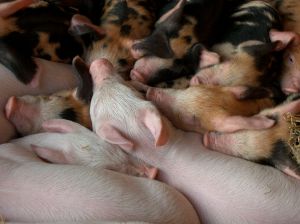As part of a national initiative, the federal government has injected $20 million into the Pork Cooperative Research Centre (CRC) which aims to transform Australia’s pork industry.
The funding, which secures the CRC’s future for a further eight years, will boost four separate research programs.
The High Integrity Australian Pork project plans to stop the confinement of sows, cut antibiotic usage in production systems by half, demonstrate the human health benefits of consuming pork and reduce CO2 emissions.
According to Pork CRC chairman, Dr John Keniry delivering these outcomes will differentiate Australian pork as a ‘high integrity’ meat.
"The Pork CRC will help ensure Australian pork is produced conserving energy and water resources, minimising greenhouse gas emissions and maintaining efficiency and cost of production at a level that promotes investment, growth and sustainability."
Director of Murdoch University’s Institute for Animal Research, Professor John Pluske says one way researchers hope to reduce emissions is by improving the feed conversion efficiency of the animals.
"If less feed can be used to produce the same amount of pig meat for example then that in itself will reduce emissions."
Professor Pluske and Murdoch University microbiology Professor David Hampson have both received funding from the CRC to research pig health and production.
Professor Pluske says at this stage the new CRC https://www.crc.gov.au/Information/default.aspx hasn’t approved any research projects yet and won’t until after July 1, when it officially starts.
As part of the new project, Prof Pluske will look into aspects of nutrition around weaning time as researchers investigate non-antibiotic alternatives, such as vaccines for some diseases.
He says there are different sorts of products that may be added to the feed, at different stages of the pigs growth, that may have similar effects to antibiotics.
"Antibiotics are only used when there’s a disease event or there’s a risk of disease effecting production or mortality and the challenge is to try and reduce that use at certain times of the pig production cycle," says Prof Pluske.
"One of the reasons to try and reduce the use of antibiotics is the concern about antibiotic resistance and any transfer of bacteria that may affect human health and influence human medicine.
"However, one of the major issues associated with antibiotic usage is [just] cleanliness, so greater attention to management issues would help to drive that reduction down."










